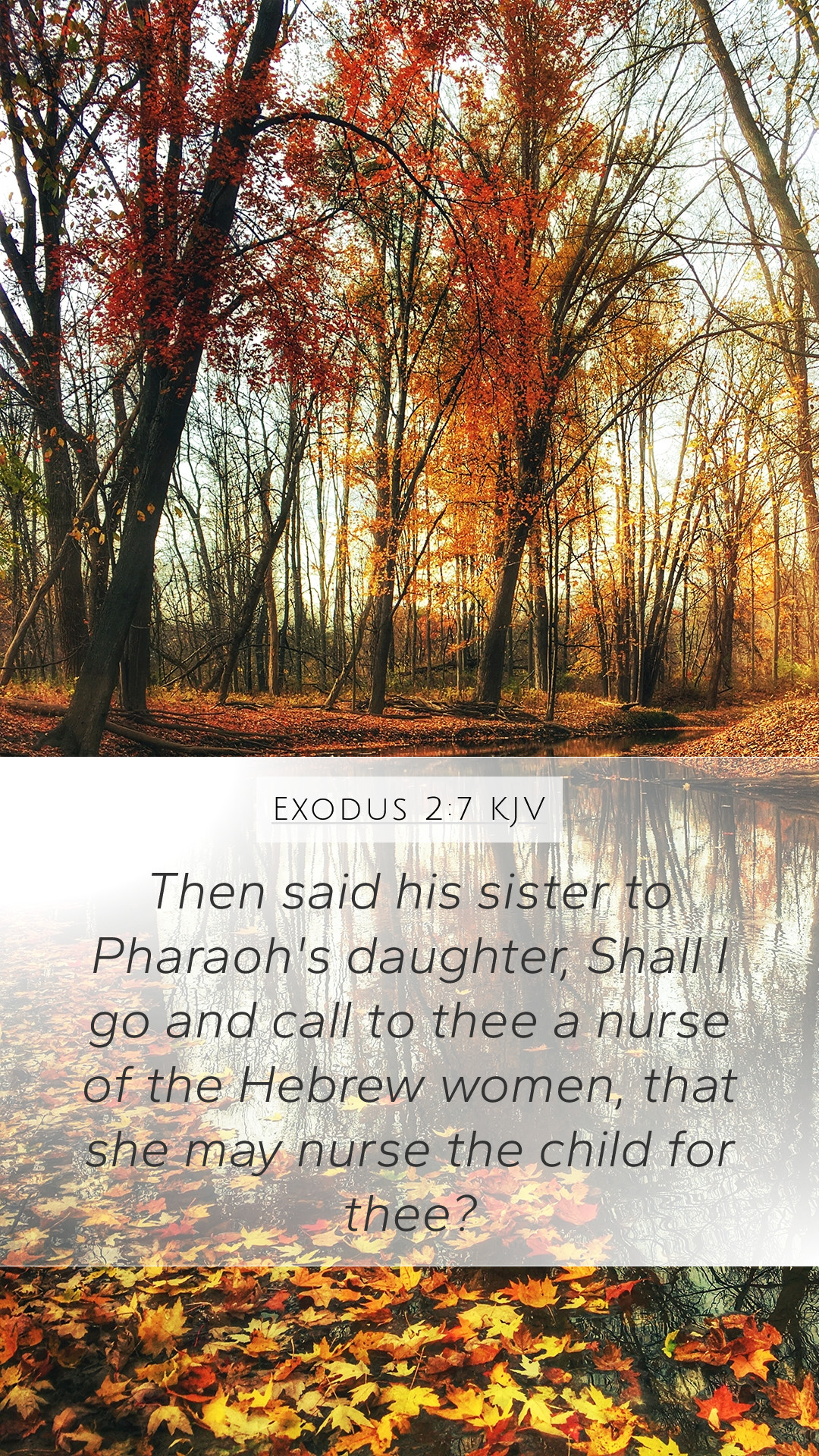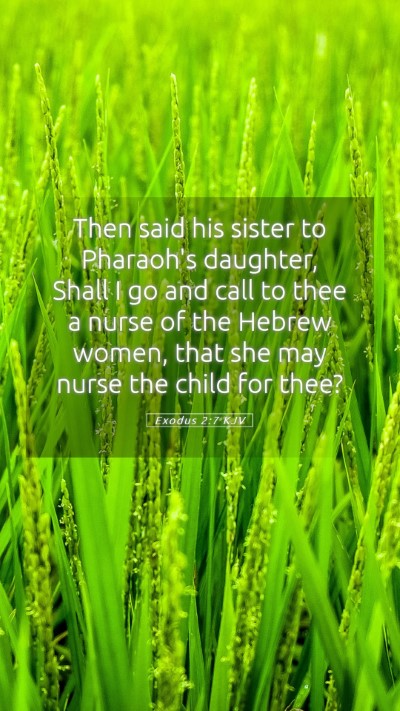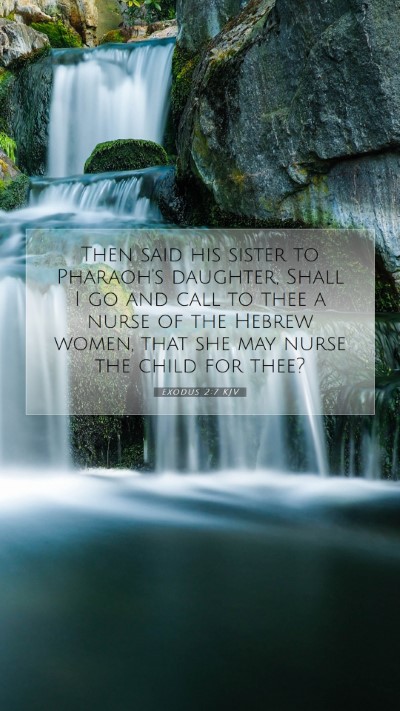Bible Verse Commentary on Exodus 2:7
Exodus 2:7: "Then said his sister to Pharaoh's daughter, Shall I go and call to thee a nurse of the Hebrew women, that she may nurse the child for thee?"
This verse provides a pivotal moment in the story of Moses, highlighting the theme of divine providence and the intricate plans that God orchestrates throughout the scriptures.
Summary of Insights
The interactions between Moses' sister, Miriam, and Pharaoh's daughter signify not only the courageous act of a young girl but also the unfolding of God's plan for Israel's deliverance. Through this commentary, we will analyze the verse in the context of historical, theological, and practical dimensions.
Historical Context
The historical backdrop of this scene reveals the oppression of the Hebrews in Egypt. Pharaoh had issued a decree to kill all newborn Hebrew males. Yet, God’s providence is evident as Moses is saved through his mother's ingenuity and then providentially introduced to the daughter of Pharaoh.
- Miriam's Role: She demonstrates bravery and intelligence, seizing the moment to ensure her brother is cared for. This emphasizes the importance of familial bonds and loyalty within the Hebrew community.
- Pharaoh's Daughter: Her willingness to adopt Moses demonstrates how God's plans can turn the hearts of those in power, fostering hope amid persecution.
Theological Significance
From a theological perspective, Exodus 2:7 underscores the theme of God's sovereignty. Despite human attempts to thwart His intentions, God can work through ordinary means to fulfill His promises.
- Divine Providence: This moment illustrates the providential care God exercises over His chosen ones. It signals that even in dire circumstances, God is at work.
- God's Deliverance: The future leader of Israel is cared for by those who seemingly oppose God's people, signifying how God can use all circumstances to achieve His will.
Biblical Exegesis and Deeper Understanding
In analyzing the text, several key points emerge:
- The Role of Women: Both Miriam and Pharaoh’s daughter play critical roles, reinforcing the idea that women contribute profoundly to God's redemptive plan.
- Intercession: Miriam’s quick thinking and intercession for Moses mirrors the intercessory role believers have in prayer for one another.
Practical Applications
This verse holds valuable lessons for believers today:
- Responding to God's Call: Like Miriam, we are called to recognize and seize opportunities to do God’s work, regardless of our age or status.
- Trusting God's Plan: In challenging situations, we should trust that God is orchestrating a greater good, even when we do not see it immediately unfolding.
Scripture Cross References
This verse relates to several other Scriptures:
- Hebrews 11:23: Highlights the faith of Moses' parents in saving him from Pharaoh's decree.
- Acts 7:20-22: Stephen recounts the story of Moses, illustrating the significance of his early life.
- Psalm 105:23-26: Reflects on how God used Moses to deliver His people from Egypt.
Conclusion
Exodus 2:7 emphasizes themes of divine providence, courageous faith, and the unfolding of God's redemptive plan. As we delve into the Bible verse meanings and explore the Bible verse interpretations, we gain a deeper understanding of the complex narrative in scripture and its implications for our lives.
Further Study
For those interested in greater Bible study insights, consider joining Bible study groups or utilizing Bible study resources that explore the narratives and teachings found in the Old Testament.
This detailed examination encourages believers to engage in online Bible study, providing Bible study lessons that connect the past with present spiritual teachings.


